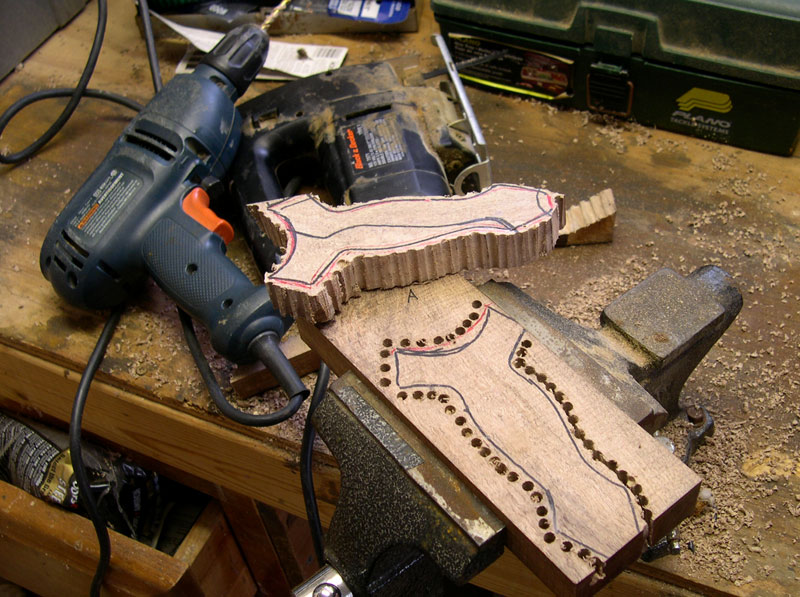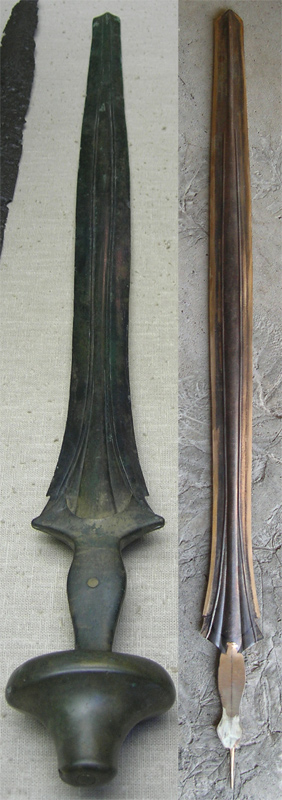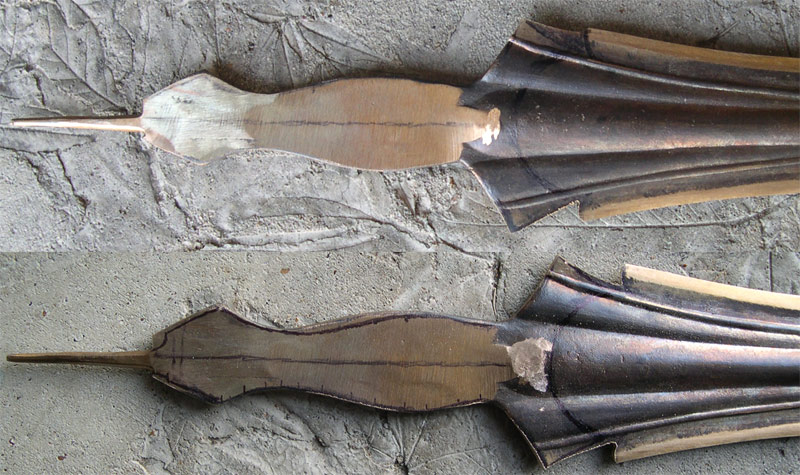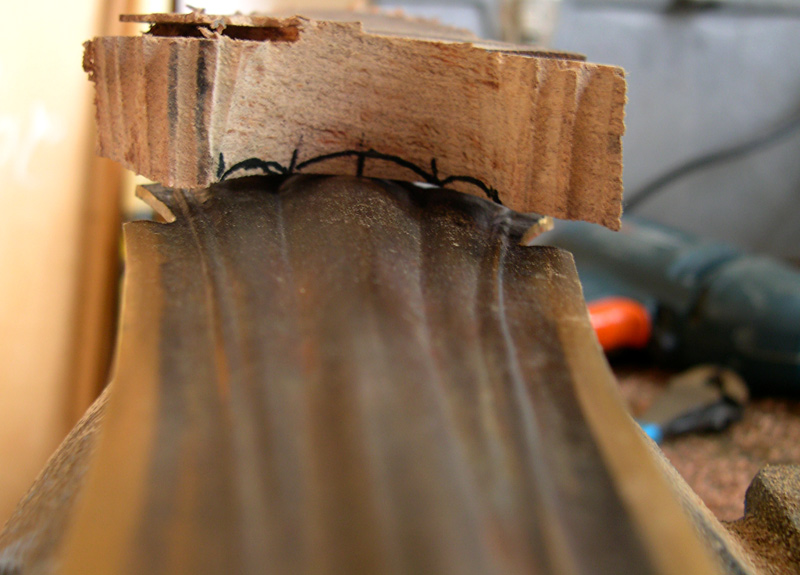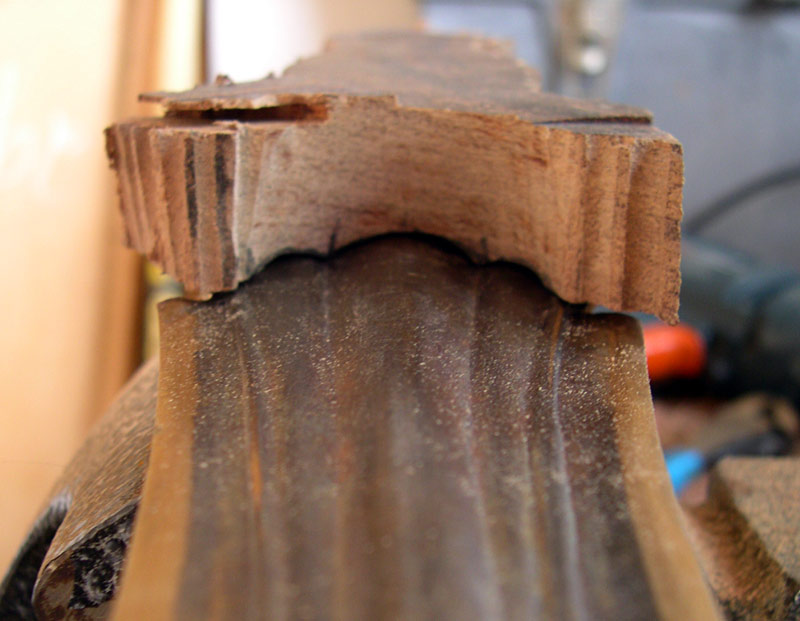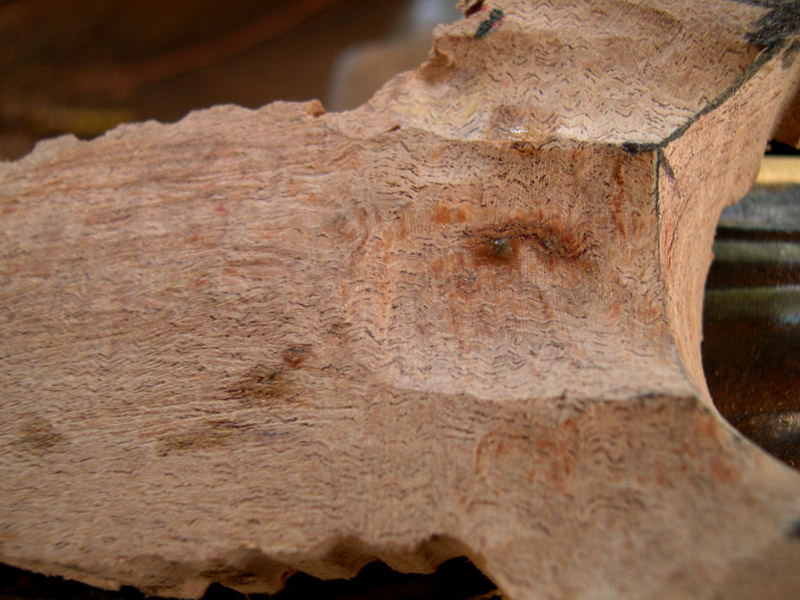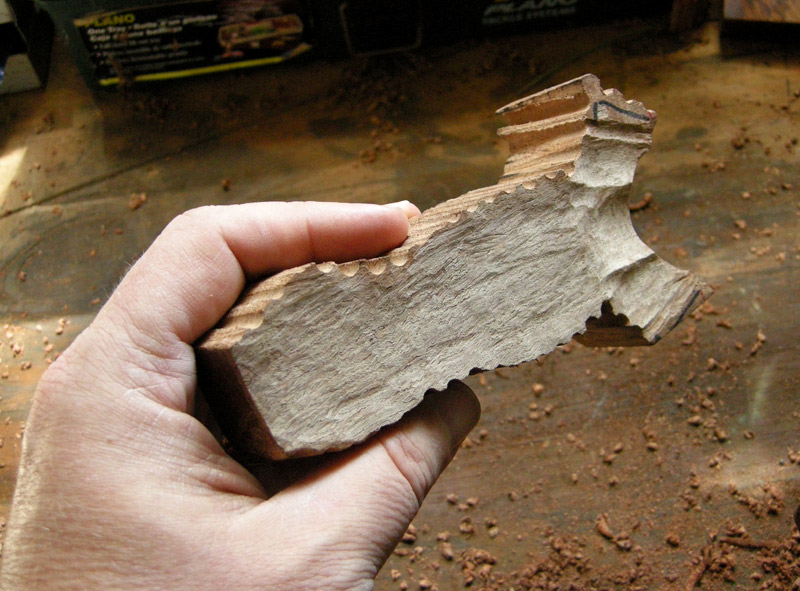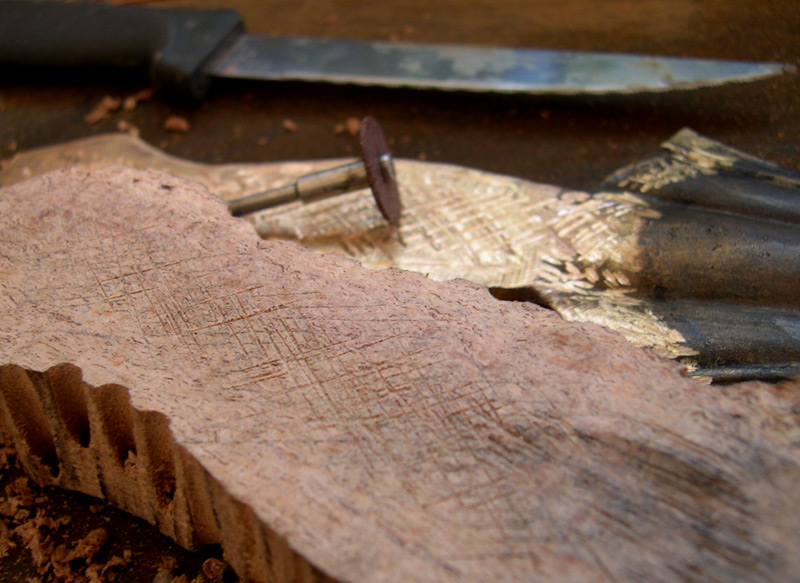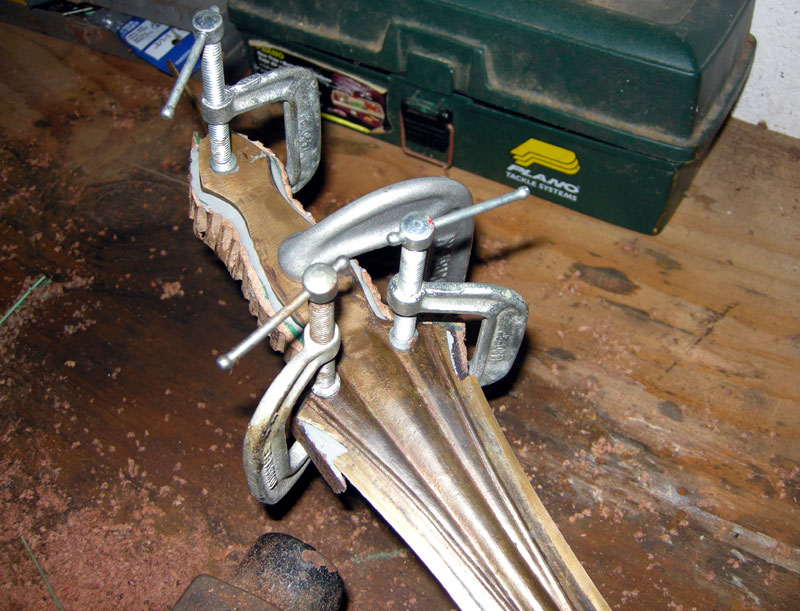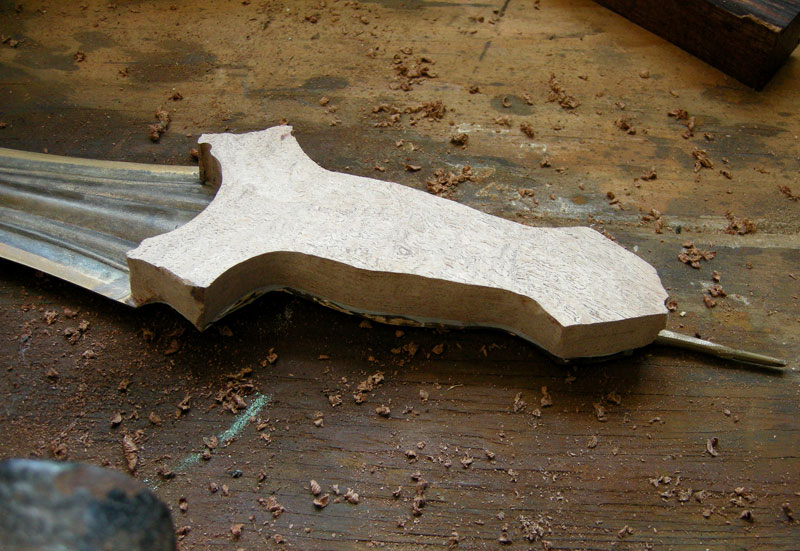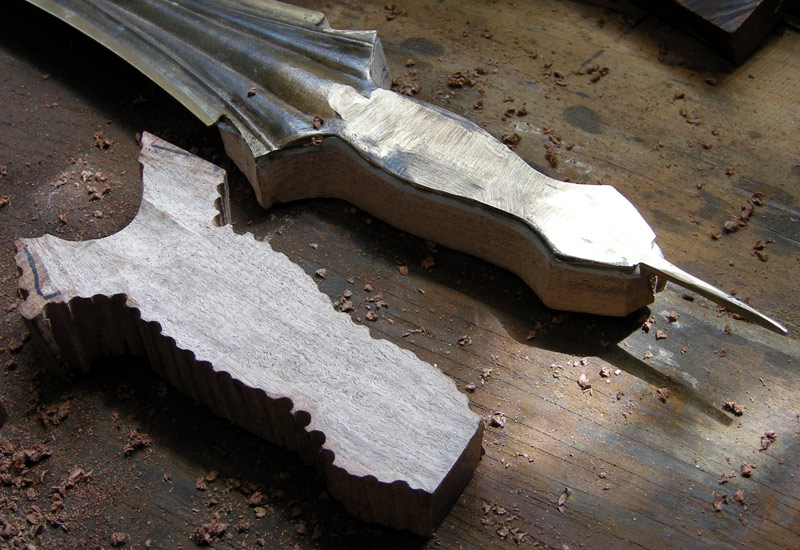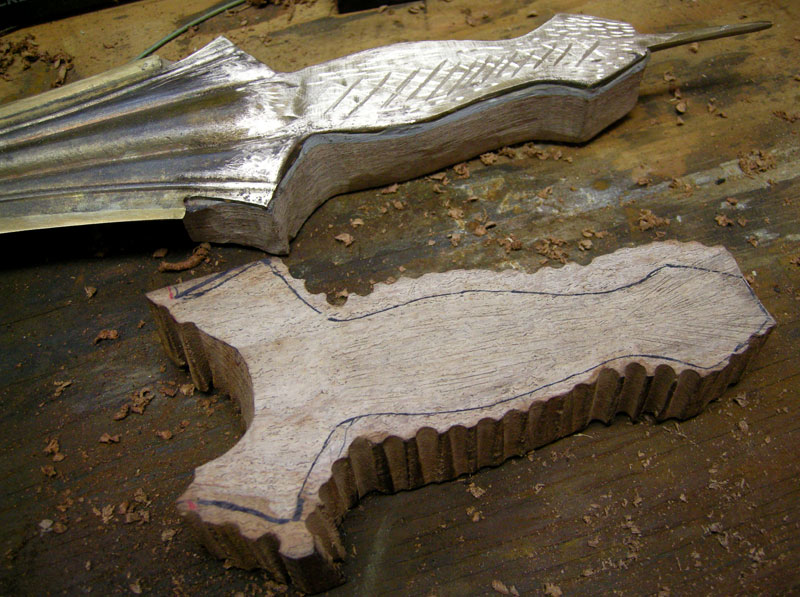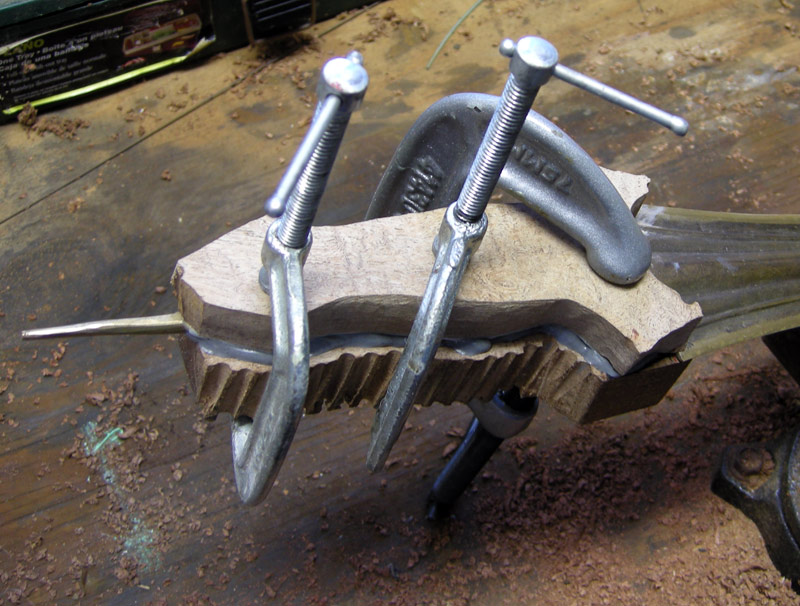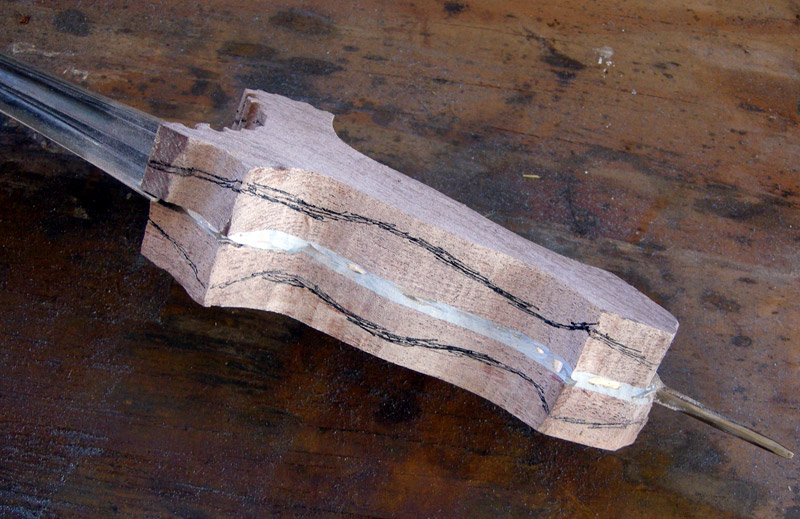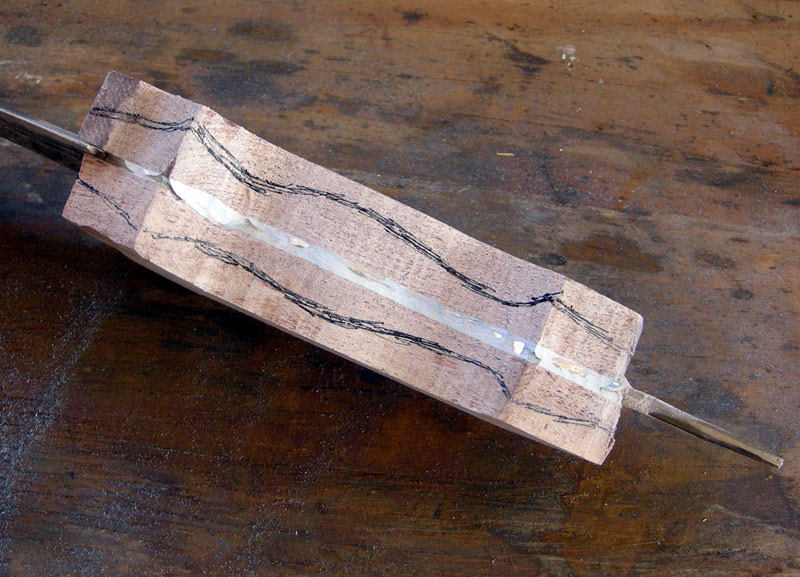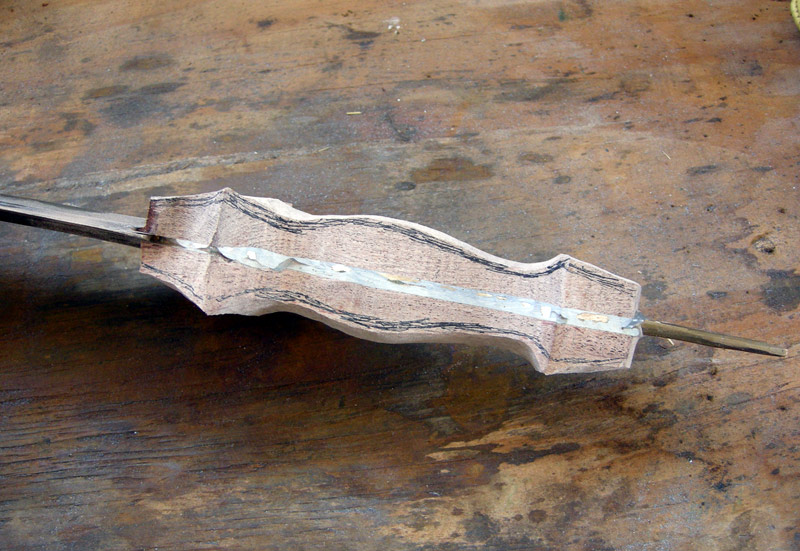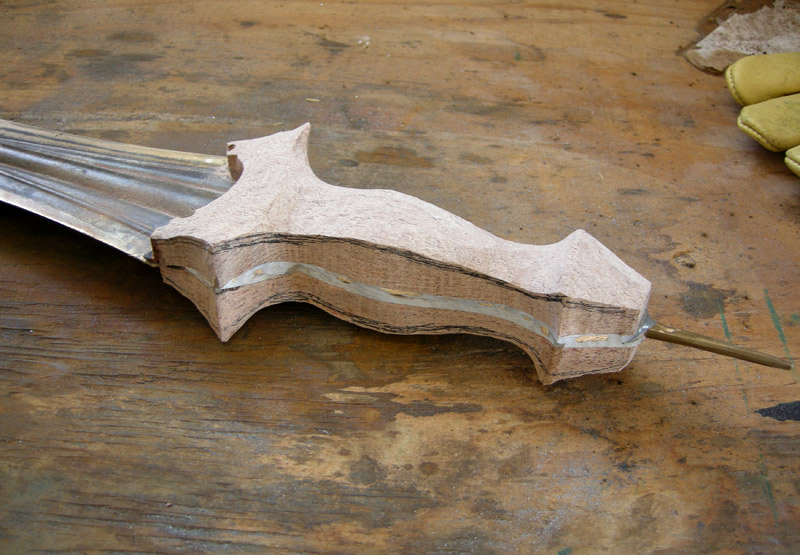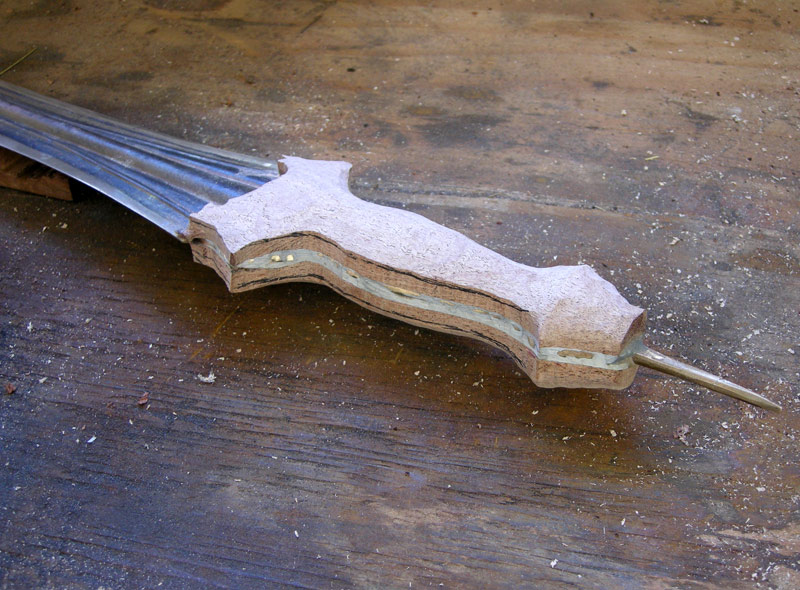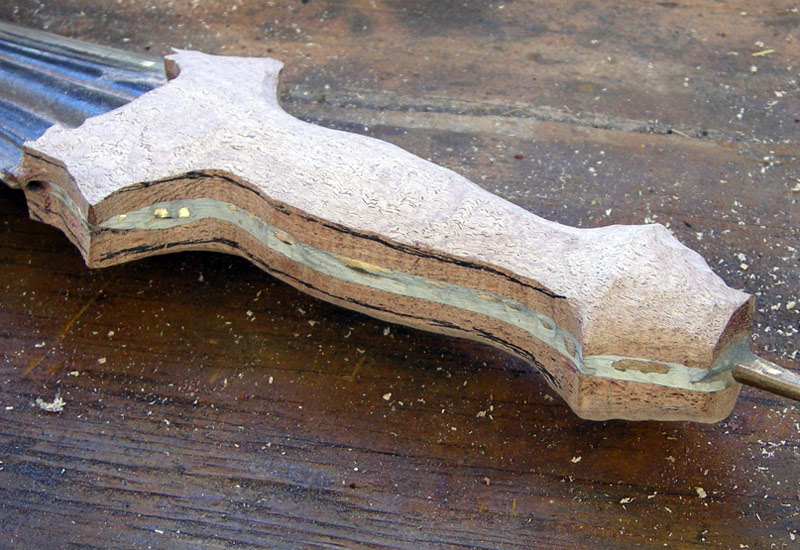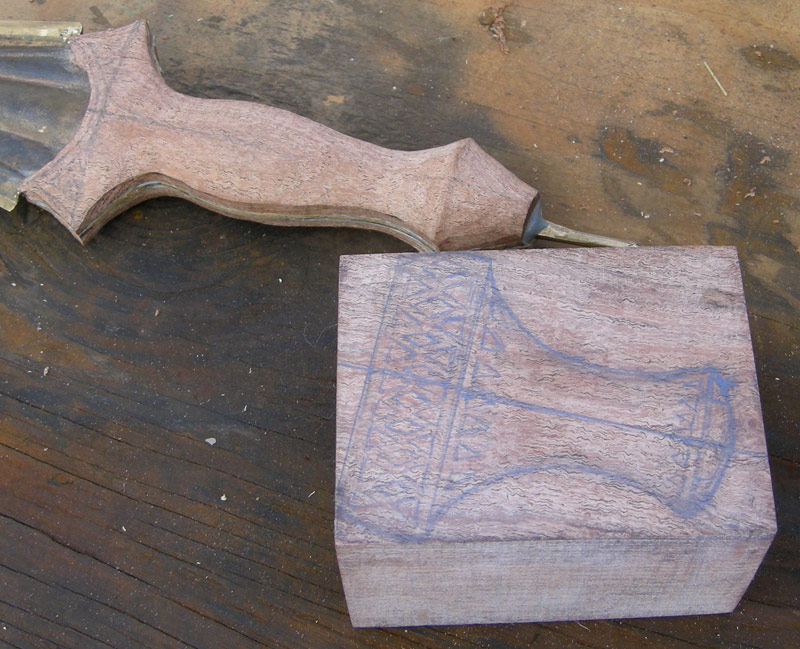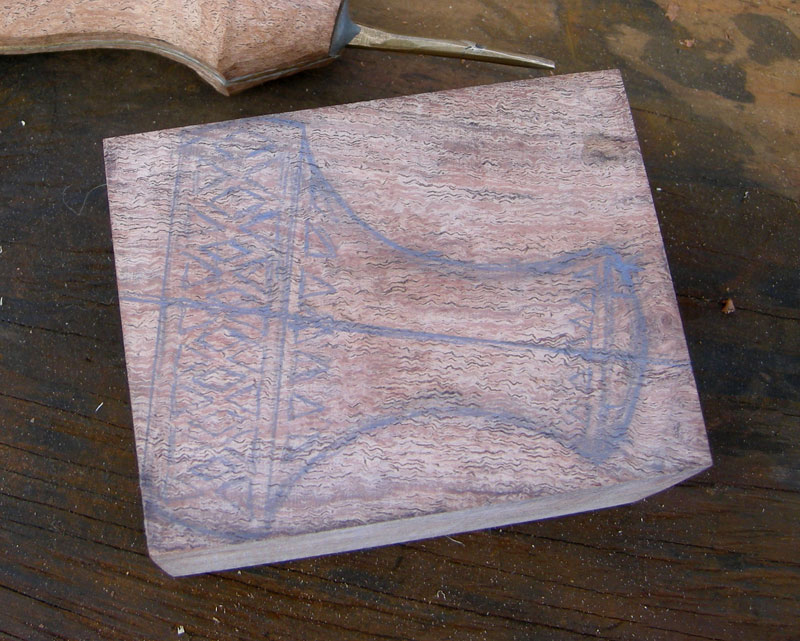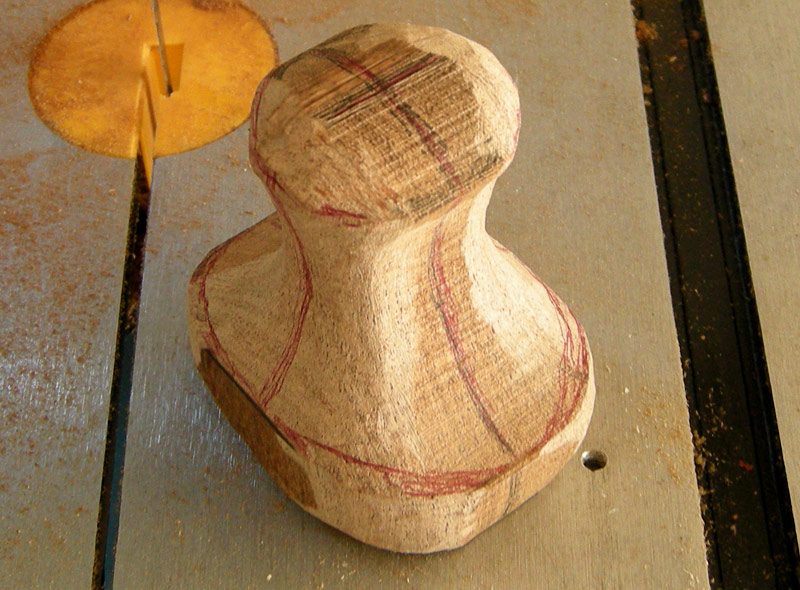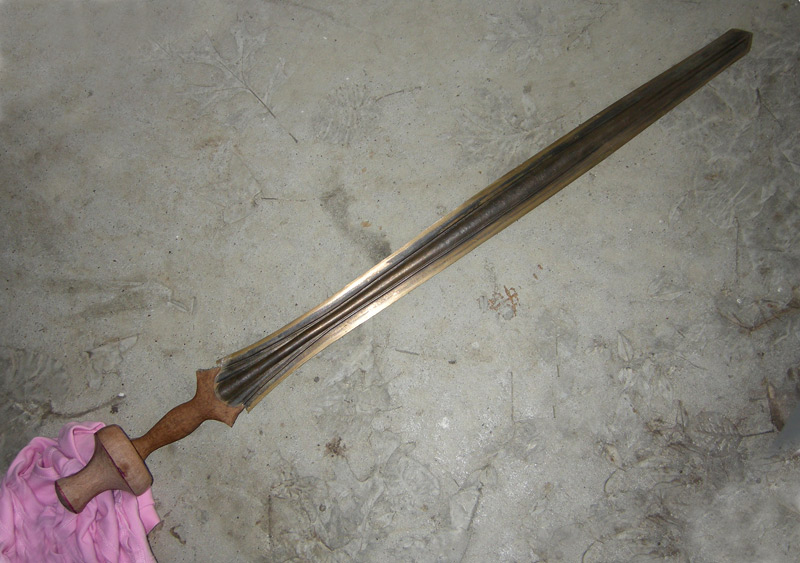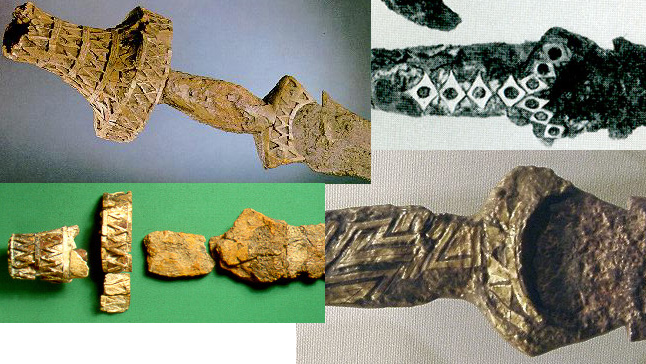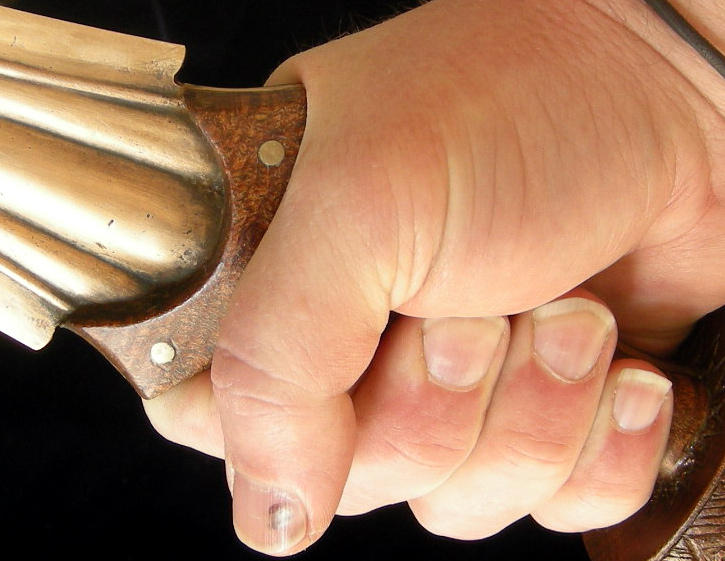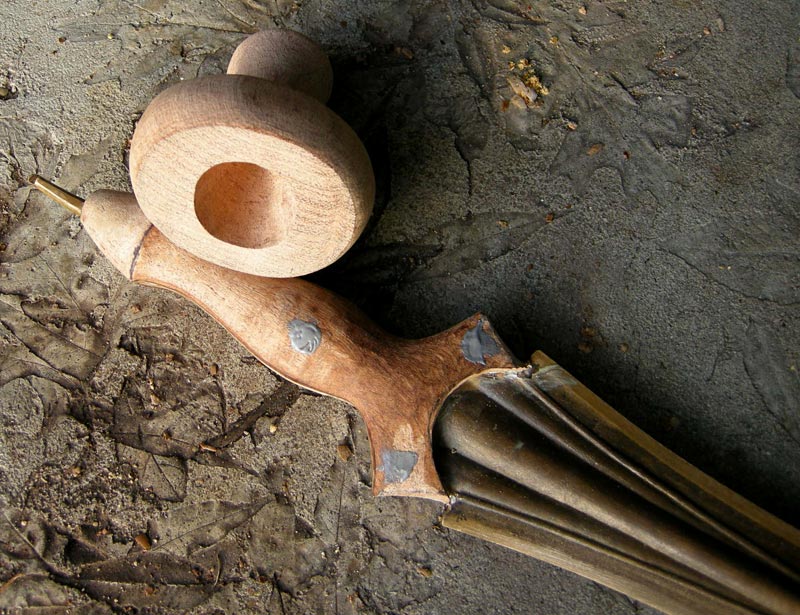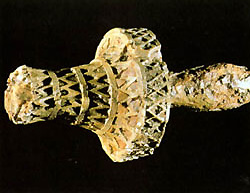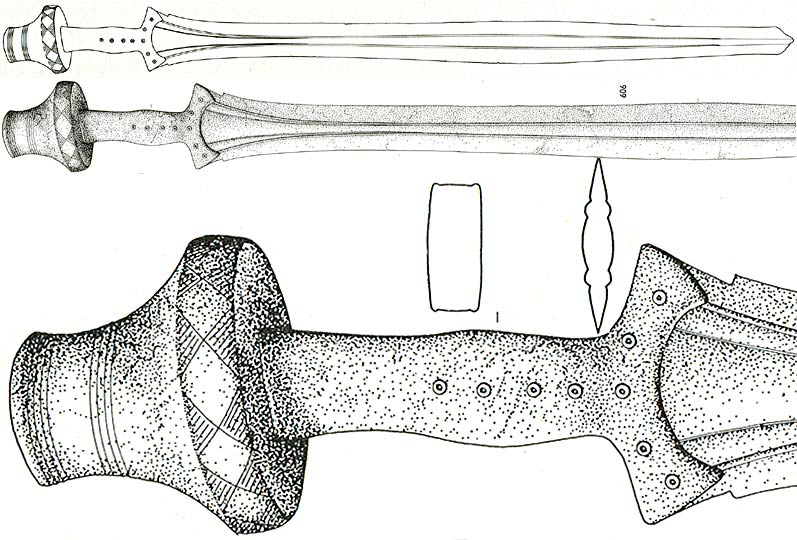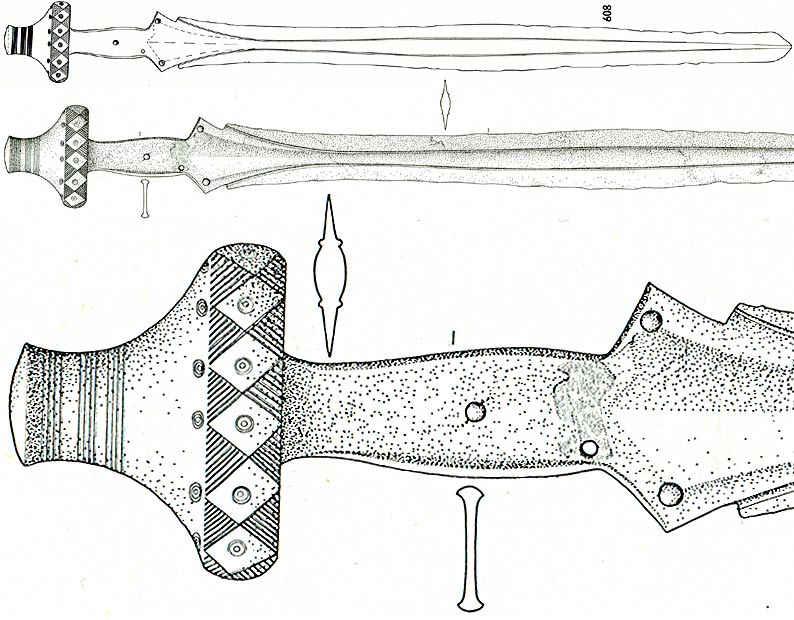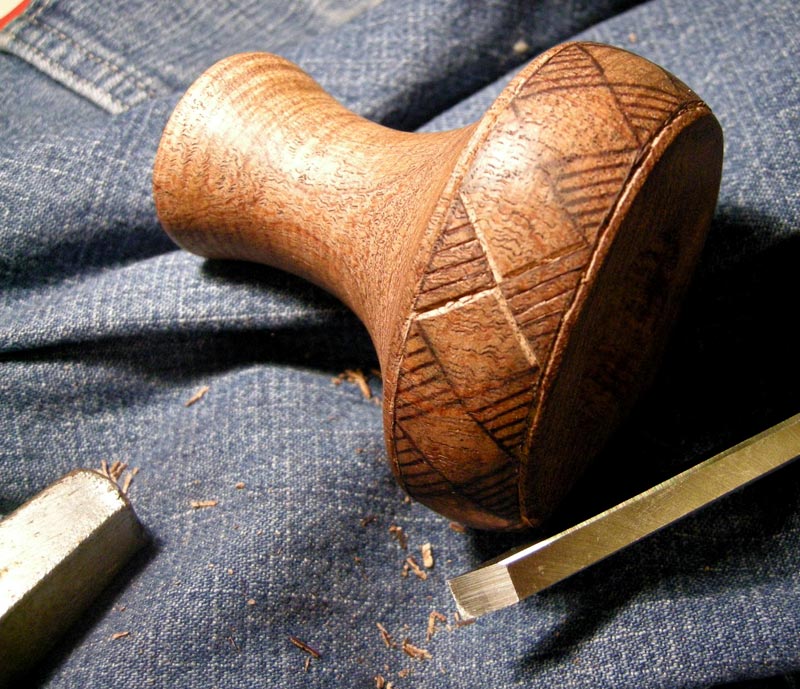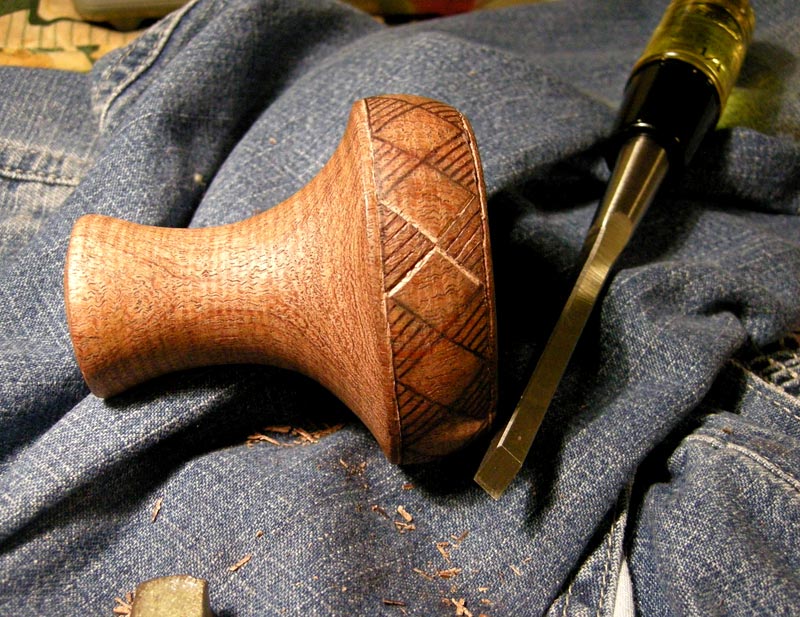Posts: 820 Location: Texas
Tue 09 Mar, 2010 3:43 pm
Roughing Out Grip Plates & Pommel
For the wood of the hilt, I decided to use a block of figured black mesquite that I have had for awhile. One side of the block was burl, the other side a tight figured “fiddle back” curl. At first I planned on using the burl side. I even cut out slabs and traced the shape of the grip. However, I knew I wanted to put a high polish on the wood and I kept thinking that the swirl pattern of the burl would look to much like my bowling ball. I might use these burled slabs later on a project where I can distress the wood by burning or sandblasting to create a topographic effect.
Looking closely at the figure of the Mesquite wood, I tried to determine which parts of the figure would look best for different parts of the hilt. I wanted to try and put the block in such a way that I could have the lines of the curl in the wood circle around the hilt, and especially the distinctive “Mexican Hat” pommels of this type of sword. At first I did not think it was going to be possible but with some minor adjustments to the width of the pommel (just about 2mm more narrow than the smallest pommel I could find measurements for) and allowing for some of the burl to appear on one of the grip plates, I could get what I wanted out of the block. I drew the shape of the grip plates and pommel on the outside of the block. I then drilled holes around the perimeter of the grip plates and took my jig saw and cut through the holes. (My wife bought me a bandsaw for Christmas about two months after this and so cutting out the pommel was a joy… hurrah for bandsaws.)
[Just a note: I wanted to add that Neil was kind enough to agree to send me the Mindelhiem as cast with no finishing on the blade. This will show you the quality of his casting, but I did not want anyone to think that the blade as you see it here is the way Neil sends them out. No. I have a Limehouse blade that Neil sent to me finished and it is simply fantastic... much better than I could do myself.]
The image is of the cut outs of the block of black mesquite on my miter saw... what I used BBS (before the bandsaw).
The second image shows the tracing of the grip shape to try and align the figure with the shape of the hilt as best I could.
The third image shows how I roughed out the grip plates BBS.
ks
 Attachment: 146.27 KB
Attachment: 146.27 KB

 Attachment: 139.8 KB
Attachment: 139.8 KB
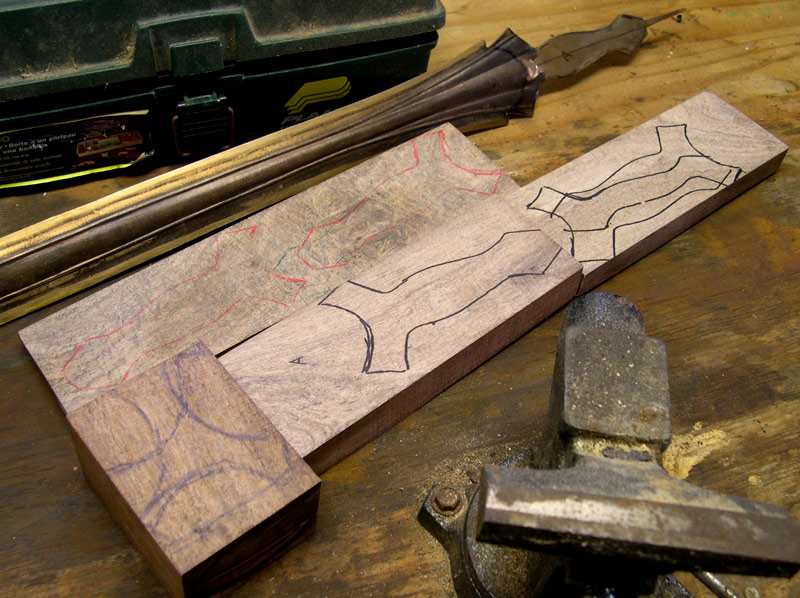
 Attachment: 141.9 KB
Attachment: 141.9 KB
